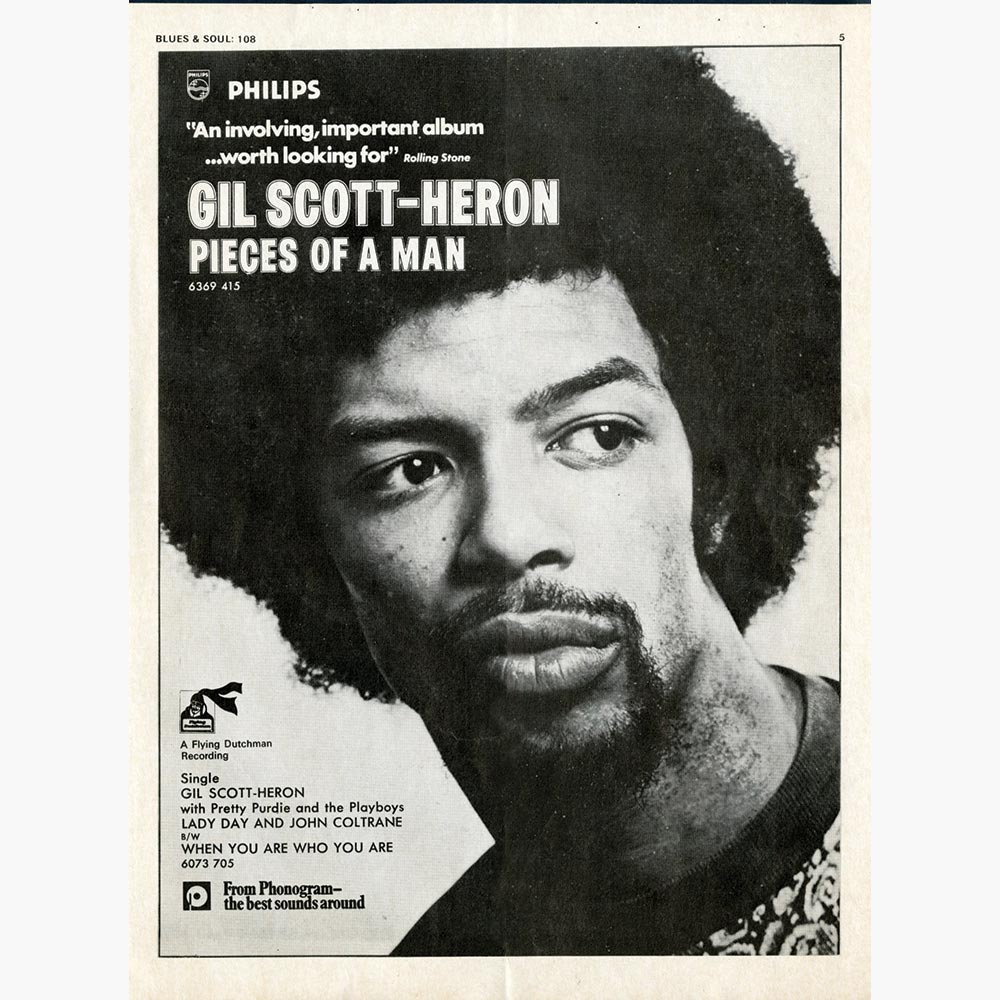Music is vital to my sanity, self-care, and overall health. I have zero qualms stating that — it’s common knowledge among my family and friends. Though, I am a die-hard fan of anything related to Wu-Tang Clan, Isaac Hayes, Mobb Deep, and M.O.P, there is one specific musician who stands out. His name is Gil Scott-Heron. Yes, the name may ring bells. He is known for his poem “The Revolution Will Not Be Televised”. I listen to his music every Sunday and have since 2006 to sooth the soul and trigger resilience.
Words cannot adequately express my gratitude for Scott-Heron. He engenders so much admiration, for he always gave us an honest perspective on life and its many idiosyncrasies. Scott-Heron was peerless and poetic. He not only focused on Chicago, Harlem, or Washington, DC where he lived. His global scope drew parallels from the Soweto streets to the Angola prison annals. As my fellowship year nears its end, I declare Gil Scott-Heron was a Global Health Corps Fellow before its official inception. His courageous stance on human rights voiced solidarity with people – not limiting him to arbitrary borders and partisan politics. Listen to an album. You can experience his creative gamut. He sang of fatherhood, racism, war, immigration, poverty, space exploration, nuclear arms, alcoholism, and many other subjects.
Of course, he was poet, author, and singer/songwriter, but he did not rest in that box. He was a professor at the University of District of Columbia. Plus, he and Stevie Wonder spearheaded the campaign that eventually led to the U.S. federal government recognizing Dr. Martin Luther King, Jr.’s birthday as a national holiday.
Scott-Heron was heavily influenced by jazz and blues music, namely John Coltrane and Robert Johnson. Scott-Heron, a self-proclaimed “bluesologist”, was also one of the early pioneers of what later became known as Hip-Hop alongside The Last Poets, The Watts Prophets, Nikki Giovanni, Oscar Brown, Jr. and Amiri Baraka. It was actually Hip-Hop that introduced me to Scott-Heron’s work via sampling. Check out Kanye West’s “Lost In The World/Who Will Survive America” as a recent example. If I could describe Scott-Heron’s music in a short phrase, I’d say “Imagine Curtis Mayfield and Abiodun Oyewole (of The Last Poets) backed by lush jazz sonics.”
Here is a promotional piece from his 1971 album, “Pieces Of A Man” (with his musical partner Brian Jackson):
Similarly to James Brown, Scott-Heron addressed drug use throughout his albums and had a history with drugs that is often cited with slowing down his recording career. Brown, The Godfather of Soul, had “King Heroin.” Scott-Heron had “Home Is Where The Hatred Is.” This song possesses poignant lyrics combined with empathy toward drug users, including himself.
He penned stinging compositions aimed at several heads of state. He spared no sting on “The H20 Gate Blues” and “B-Movie”, yet he saved his most venom for “We Beg Your Pardon (Pardon Our Analysis).”
I have very few regrets in my life but one is not seeing Scott-Heron perform live. I squandered that opportunity in 2010 at Blues Alley. Sadly, he passed the next year after releasing his 13th album. That album featured this song, “Me and The Devil,” which is a remake of Robert Johnson’s blues classic.
Gil Scott-Heron warmed our hearts, rejuvenated our souls, and opened our eyes. On behalf of us all, thank you.
http://youtu.be/3od114a4o7Y

